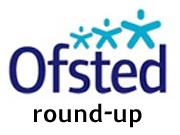Ofsted round-up – This week: Reports from IT and care providers

Voyage Group Limited, Lichfield
Summary of grades awarded:
Effectiveness of provision Satisfactory: Grade 3
Capacity to improve Satisfactory: Grade 3
Achievement and standards Satisfactory: Grade 3
Quality of provision Satisfactory: Grade 3
Leadership and management Satisfactory: Grade 3
Equality of opportunity Contributory grade: Satisfactory: Grade 3
Sector subject area:
Health, public services and care Satisfactory: Grade 3
Voyage is a national provider of residential supported living and other associated care services to adults with a wide range of learning disabilities. Based in Lichfield and created in 2002, it is part of the Voyage Healthcare Limited and has 5300 employees across England, Scotland and Wales. Although Voyage was awarded a government funded training contract n August 2007, it was not until February 2008 that the first learners joined the programme. It holds its contract with the National Employer Service to provide National Vocational Qualifications (NVQ) under the Train to Gain programme in the learning area of health and social care. At the time of the inspection there were a total of 67 learners working towards a qualification.
The overall effectiveness of the provision is satisfactory and Voyage has demonstrated that it has sufficient capacity to make further improvements. Despite this being the provider’s first inspection, Ofsted has found that its self-assessment and quality improvement planning processes are satisfactory.
Although the provider experienced a slow start in delivering the Train to Gain programme in August 2007, with learners not joining until February 2008, in the last six months the provider has carried out a range of effective action to improve the provision. Key strengths include high success rates for learners completing the NVQ at level 2, good development of work-place skills, good assessment practice, good staff development strategy to meet the business needs and good actions to improve the training provision.
Ofsted has found that achievement and standards are satisfactory with the overall success rates for learners completing an NVQ at level 2 being high in the current year at 83%. Since the programme began to be delivered 47 learners have achieved an NVQ at level 2. Success rates for learners completing an NVQ at level 3 are low in the present year at 44%. A total of 18 learners have so far achieved an NVQ at level 3. The provider made a decision in October 2008 to stop the recruitment of further learners into this qualification until a full programme review had been carried out to bring about improvements to the quality of the learning programme.
East London Advanced Technology Training
Summary of grades awarded:
Effectiveness of provision Good: Grade 2
Capacity to improve Contributory grade: Good: Grade 2
Achievement and standards Good: Grade 2
Quality of provision Good: Grade 2
Leadership and management Good: Grade 2
Equality of opportunity Contributory grade: Good: Grade 2
Sector subject areas:
Information and communications technology Satisfactory: Grade 3
Preparation for fife and work Good: Grade 2
Founded in 1984, East London Advanced Technology Training (ELATT) provides training in information technology, particularly for unemployed adults. ELATT now also offers English for speakers of other languages (ESOL) provision and, in partnership with other providers, some Train to Gain qualifications. ELATT is predominantly funded by the London East LSC, the London Development Agency (LDA) and London Councils co-financed with European Social Fund (ESF). In 2007/08 there were 290 on ESOL courses and around 350 learners on ICT courses, of whom 152 also undertook additional skills for life learning aims.
Ofsted found the overall effectiveness of ELATT’s provision to be good, with capacity to improve also being good. A very thorough self-assessment process involves all staff in both gathering evidence and identifying areas for improvement. Learners’ views are collected through evaluation forms and a series of learner events. The self-assessment report is detailed, constructively self-critical, and inspectors agreed with nearly all aspects.
Key strengths include good success rates on most ICT courses, good support and guidance for learners, strong leadership and helpful partnerships to meet community needs and particularly effective quality improvement processes.
Achievements and standards are good overall with success rates on most ICT courses being good. ESOL success rates are satisfactory and Ofsted has found that learners work well in their classes and, with very supportive tutors, achieve good standards in their work. The in-year success rates and timely rates for the ICT Train to Gain programme are very good. The overall rate for short courses, most ELATT’s provision, is good.
Natalie Hailes






Responses